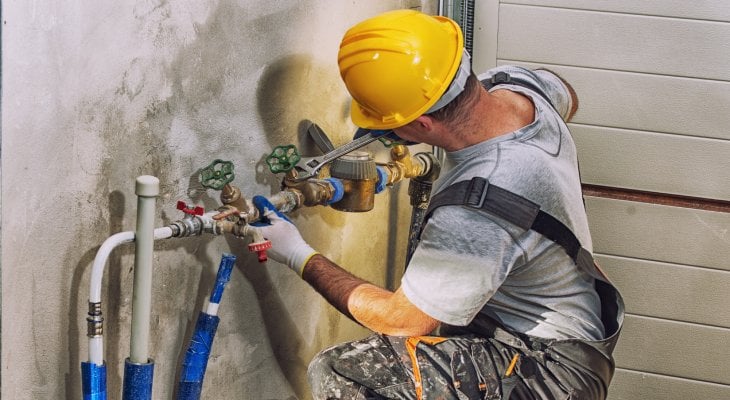
Understanding Commercial Plumbing Maintenance
Maintaining your commercial plumbing system prevents costly repairs, minimizes downtime, and extends the lifespan of your plumbing infrastructure. A proactive approach to maintenance keeps your plumbing system running efficiently and reduces the risk of significant issues.
The Importance of Routine Inspection
Proper commercial plumbing maintenance starts with regular inspections. Schedule routine checks for leaks, blockages, or signs of wear and tear. Small issues, like slow leaks or minor clogs, can quickly escalate to major problems without immediate action.
Look for water stains, mold growth, or unusual rusting in pipes. These are often early warning signs of plumbing trouble. Spotting these indicators early helps resolve issues before they become expensive repairs.
Keeping Drains and Pipes Free From Blockages
Clogs in your commercial plumbing system can slow down operations and lead to costly damage. Educate employees about proper waste disposal methods to prevent unnecessary blockages.
Provide clear signage in restrooms and kitchen areas, reminding users to avoid flushing paper towels, feminine hygiene products, or other non-dissolvable items. Consider installing drain strainers to catch debris before it enters the plumbing system.
Routine pipe and drain cleaning helps maintain proper water flow and reduces buildup. Using eco-friendly drain cleaners can prevent clogs and keep your system flowing efficiently. Regular maintenance allows water to flow smoothly through the system, avoiding backups or overflows.
Controlling Water Pressure
Regulating water pressure is another essential aspect of commercial plumbing maintenance. High water pressure can damage pipes, fixtures, and appliances, leading to costly repairs. On the other hand, low water pressure can reduce fixture efficiency and cause delays in operations.
Install pressure regulators to keep the system operating within safe pressure levels. Check pressure levels routinely to avoid long-term damage caused by excessively high or low pressure. Remember to address water pressure concerns promptly to prevent strain on your system.
Inspecting and Maintaining Fixtures
Commercial plumbing fixtures endure heavy daily use, making regular inspections essential. Leaking faucets, running toilets, or malfunctioning fixtures can waste water and increase utility bills. Replace washers, gaskets, or other small parts immediately to stop leaks.
High-quality commercial toilet repair parts make it easy to perform repairs quickly. Air Delights provides a wide selection of repair parts for businesses so you can fix your plumbing system without hassle. Using reliable parts results in longer-lasting repairs and reduces the likelihood of future issues.
Preventative Maintenance Measures
In addition to repairs, investing in preventative measures strengthens your plumbing system. For example, installing water softeners reduces mineral buildup in pipes and fixtures. Over time, minerals can accumulate and restrict water flow, leading to pressure issues and potential pipe damage. Flushing the system regularly will remove sediment buildup and help maintain optimal water flow.
Train maintenance staff to recognize signs of early plumbing problems. Well-trained staff can identify leaks, pressure problems, or unusual noises before they become critical.
Investing time and resources into proactive maintenance saves money. Quickly responding to issues and performing routine maintenance minimizes emergency repairs and extends the life of your plumbing infrastructure. Your business depends on its plumbing system—don’t wait for a breakdown to act.


